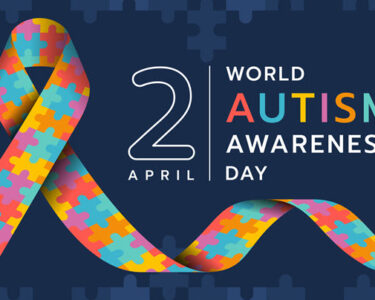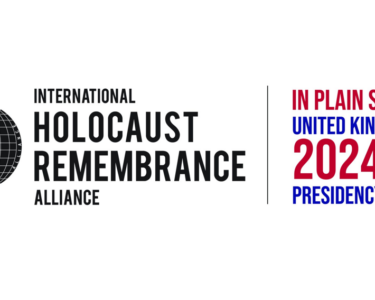Evidence from the UCL Centre for Holocaust Education indicates that secondary school children today are generally ignorant of the Bergen-Belsen concentration camp, liberated by the British on 15th April 1945, and its connection with the Holocaust.
On 15 April 1946, nearly three-quarters of the 9,000 Holocaust survivors housed in the Displaced Persons camp at Bergen-Hohne, made the short journey to the former site of the Bergen-Belsen concentration camp. The occasion was the first anniversary of Liberation Day – the moment twelve months earlier when British forces entered the camp and uncovered all manner of horrors and shocked many the world over. Like all commemorative events it was a highly politicised affair; as a stone memorial to Jews who had died in Belsen was unveiled, Norbert Wollheim – the Deputy Chairman of the Central Committee of Liberated Jews in the British Zone – took the opportunity to publically criticise the British for their continued recalcitrance towards Jewish immigration into Palestine, and not doing enough to prevent the destruction of Europe’s Jews during the Holocaust.
In the seventy years since, the liberation of Bergen-Belsen has held a position of pre-eminence in British collective memory of the Holocaust. As the work of Tony Kushner has shown, since 1945 Belsen has had a “particular resonance and centrality in the British imagination” – acting as a cultural reference and point of access for British approaches to the Holocaust. The Queen and Duke of Edinburgh’s visit to the site last year together with the intense media coverage given to the monarch’s meeting of survivors and former liberators only further reinforced this symbolic power. Meanwhile, the government’s decision to fund a digital scanning project of Bergen-Belsen – part of an on-going collaboration between experts and the UK Holocaust Memorial Foundation established to ensure Britain fulfils its “Promise to Remember” – was made in part to ensure the camp features prominently within the proposed world-class Learning Centre.
Belsen thus retains a key position within Britain’s thinking of the Holocaust; rightly so, in many respects. However, this has not resolved significant differences between Belsen in history and Belsen in memory – whether this be misunderstandings of Belsen and the relationship of concentration camps writ large to the Holocaust, misrepresentations in popular culture, or a continuing impulse to use Belsen for the purposes of moral triumphalism. Moreover, recent research by the UCL Centre for Holocaust Education in students’ knowledge and understanding of the Holocaust, indicates these issues are now joined by a general ignorance of Bergen-Belsen among schoolchildren.
According to this landmark research (which drew on a quantitative data from over 8,000 11-18 year old students and qualitative focus-group interviews) only 15% of students surveyed indicated the term “Belsen” was linked to the Holocaust with 63% actually rejecting this association. Yet this was by no means the only concerning finding; more broadly, students displayed very limited and often erroneous understandings of Britain’s role in the Holocaust. Asked what happened when the British government knew about the mass murder of the Jews, 34% of student responding to the survey indicated Britain declared war on Germany with another 24% indicating Britain knew nothing of the Holocaust whatsoever. Of the remainder, 17% of students thought the British thought up rescue plans to save the Jews.
Questions of Allied knowledge and understanding are by no means straightforward, but certainly by the middle of 1942 the British government was aware of what was taking place in occupied Europe. Indeed, together with the other Allied powers, the government committed itself in December 1942 to bringing to justice those responsible for “the barbarous and inhuman treatment” of the Jews. Notably, of the students responding to the Centre’s research, only 7% were aware of this commitment.
Coming at a time when the Holocaust has been on the National Curriculum for nearly 25 years, these are sobering and deeply concerning findings. They are made all the more pressing by recent recommendations by the Education Select Committee. Following its inquiry into Holocaust education, the Committee emphasised that the capacity of academies to select their own curriculum placed an onus on the Government to “take steps to ensure that Holocaust education does not become inadvertently patchy”. Furthermore, the Committee was adamant “the Department for Education should take steps to support the organisations it funds to deliver Holocaust education to more history teachers”.
Time will tell as to how the Government will respond to these specific recommendations, and how far the serious issues uncovered by UCL’s Centre will translate into a reflexive, self-conscious new Holocaust memorial and Learning Centre. The lofty aims of these two new initiatives are laudable, to be sure, but they are neither straightforward nor beyond contestation. The notion the Holocaust teaches “lessons”, for example, is by no means agreed or assured, while the belief that remembering the Holocaust acts as a reassertion of “British values” should not blind us to the darker aspects of our own history.
As we mark the 71st anniversary of the liberation of Belsen its memories and its complicated history should – like that of the Holocaust more generally – provide a challenge to us, not a comfort. For this to occur, we cannot rely on memory alone. When remembering Belsen and the Holocaust, we must acknowledge the selective and subjective nature of our memories, and measure them against historical knowledge and understanding. Only then can we hope to know just what we are choosing to forget, and begin to question why.
Dr Andy Pearce, UCL Centre for Holocaust Education



